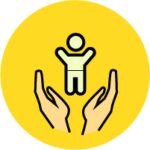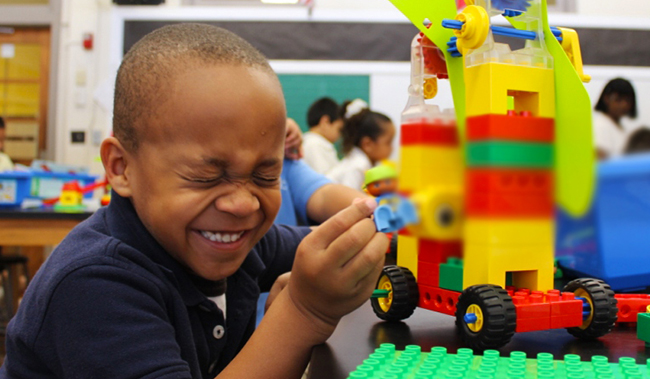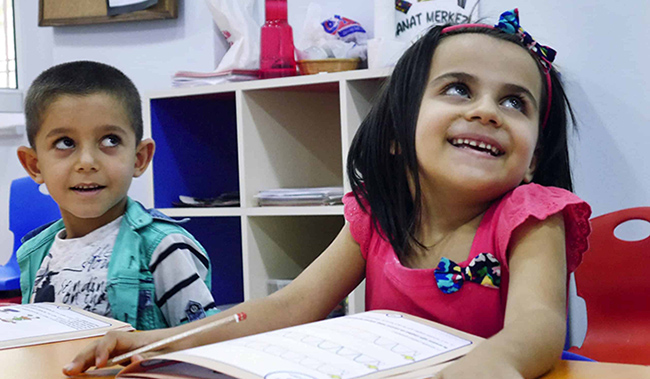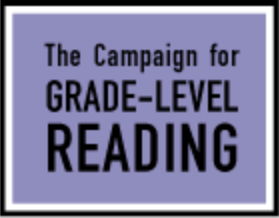Early School Success: Recover learning and accelerate gains
The COVID-19 pandemic has disrupted learning for children of all ages. For children ages 0 – 8, brain development and social and emotional learning are especially critical. Early school success predicts later school success and a host of positive life outcomes. Unless we can recover learning lost during the pandemic and accelerate gains, we risk losing a generation of children.
Here’s how you can help.
Watch Video
What Donors Can Do
Young children need a web of support to begin developing their full potential. That web of support consists of the adults in their lives – parents, caregivers, teachers, and others – who help children meet their physical, social, emotional, and academic needs. Donors can ensure early school success, by funding efforts that support the whole child, expand learning opportunities, and bridge the digital divide.
Below you’ll find a description of each strategy, profiles of nonprofits employing these strategies, additional nonprofits to consider <hyperlink to section on this page>, and ways that both business and government can support early school success.

Support the Whole Child
Support the whole child by developing emotional readiness and building life skills needed for school and lifelong success. Given the scale of COVID’s negative impact on the adults in children’s lives, this includes providing multigenerational support and ensuring parents, caregivers, and families have sufficient resources and support to meet their children’s basic needs, including food, housing, health care, and safety.

Expand Learning Opportunities
Learning happens everywhere and any time. Expand learning opportunities by extending the time and space for learning and by expanding the workforce of teachers and caregivers. COVID closed daycare centers, preschool, afterschool and summer enrichment programs, all places where young children learn and grow. There was already a gap in access to high-quality learning outside of K-12 schools. That gap has widened, as children who were traditionally underserved by out-of-school time opportunities received even less support during the pandemic.

Ensure Digital Equity
Bridge the digital divide and create an equitable learning environment by expanding access to devices, broadband, and digital literacy training for teachers, caregivers, and learners. Distance learning required during COVID made differences in digital access stark. For example, roughly 30% to 35% of Black and Latinx/Hispanic households and 20% of white households did not have the broadband access that made distance learning possible.
Opportunities for Impact
Nonprofits Making an Impact
To help donors see what an effective program can look like, we highlight two nonprofit organizations that are employing a range of Early School Success strategies in the different community contexts.
Organizations to Support
Donors who want to support early learning success have many choices to make, from which strategy to fund and which community they intend to help. Here we share a range of organizations in the U.S. and internationally that we’ve identified and vetted over the past year, sourced from recent applied research, past guidance, and partnerships with the Campaign for Grade Level Reading, Greenlight Fund, Lipman Family Prize, and Mindful Philanthropy.
Support the Whole Child
Support for mental, physical, and emotional well-being of children
Friends of the Children supports children who have faced multiple adverse childhood experiences through long-term mentorship.
TREP Project trains educators serving children in neighborhoods with high levels of toxic stress.
WINGS uses an early and comprehensive approach to in-school and afterschool programs grounded in the principles of positive youth development and evidence-based social emotional learning practices to foster the mindsets, skills, and confidence within each child.
Multigenerational supports
Abriendo Puertas builds parental skills and promotes family well-being and positive outcomes for children in Hispanic/Latinx communities.
AVANCE assists under-resourced families of young children using a two-generation education and relationship-building methodology to boost family outcomes as parents, employees, and citizens.
The Child-Parent Center program (CPC) provides comprehensive educational, family support, and healthcare services to economically disadvantaged children from ages 3-9.
Nurse-Family Partnership pairs specially trained registered nurses with vulnerable women who are pregnant with their first child, starting early in pregnancy and continuing through the child’s second birthday.
Springboard Collaborative, a nonprofit based in Philadelphia with programs in multiple cities, has helped close the literacy gap with a hands-on approach to involving parents — not just teachers and students — in literacy learning with in-home and summer programs.
Economic and housing support for families
Compass works to expand the scope and impact of HUD’s Family Self-Sufficiency (FSS) program, a promising but underutilized savings and employment program for families living in federally subsidized housing.
LIFT coaches help parents set objectives like securing a safe home, living wages and a better education and connects them to the financial resources and networks they need.
HomeStart’s Renew Collaborative is an eviction prevention program that supports families and prevents learning disruptions.
Springboard to Opportunities’ Magnolia Mother’s Trust provides low-income, African-American mothers in Jackson, Mississippi, with $1,000 guarenteed income on a monthly basis, no strings attached, for 12 months straight.
Expand Learning Opportunities
Tutoring, mentoring, afterschool, and summer programs
BellXcel provides high quality and evidence-based summer and after-school programs to elementary-aged children. BellXcel combines an online platform with curriculum, professional learning, and coaching to help organizational partners create high-quality youth development programs.
Jumpstart partners with preschools serving low-income children (for example, Head Start programs), and trains volunteers to deliver a research-based, structured early literacy curriculum twice a week for two hours during the school year.
Reading Partners works with school districts across the nation to provide volunteer tutors from the community to work one-on-one with students who are behind on reading.
WINGS uses an early and comprehensive approach to in-school and afterschool programs grounded in the principles of positive youth development and evidence-based social emotional learning practices to foster the mindsets, skills, and confidence within each child.
Extending where learning happens
Grow the pool of teaching talent
All Our Kin trains, supports, and sustains family child care educators to create opportunity and give children and families have the foundation they
AppleTree Institute offers a comprehensive instructional model called Every Child Ready (ECR) that includes curriculum and resources to improve instruction, coaching, teacher professional development, and assessment through partner schools and community-based organizations.
Children’s Literacy Initiative partners with school districts to train and coach preschool through third grade teachers in the most effective literacy techniques, typically working with a school for three years.
Early Learning Ventures provides tools and resources that allow child care providers to streamline their business operations to give them more time and resources for caring for children.
New Teacher Center partners with school districts around the U.S. to support and retain some 25,000+ new teachers per year. NTC works closely with district partners to train veteran teachers as mentors and coaches who work intensively with new teachers over a two-year period, with a focus on reaching under-served and vulnerable student populations.
Urban Teachers prepares, certifies, and supports new educators to provide high-quality education for children by offering a master’s degree, coaching, mentoring, and job placement.
Ensure Digital Equity
Increase student access to devices and broadband
Computers 4 People refurbishes and rerecycles used computers for individuals in technologically-deprived or disadvantaged areas in New Jersey.
Computers for Classrooms has been connecting students and low-income earners with technology since 1991 in California. The nonprofit receives donations and sells them to schools and eligible individuals at a reduced price.
Eliminate the Digital Divide creates digital solutions for families in and around Charlotte, North Carolina.
EveryoneOn helps to connect low-income families with affordable internet plans and devices in their area. It also has a number of free digital literacy training programs for adults looking to improve their skills.
human-I-T In addition to refurbishing and distributing donated equipment, human-I-T also helps people get connected to affordable internet options in their area.
The National Digital Inclusion Alliance (NDIA) brings together hundreds of community advocates around the country who are working to expand broadband access. The NDIA works connects consumers to low-cost plans and advocates for federal funding.
Partners Bridging the Digital Divide provides a useful directory of nonprofits promoting equitable internet access.
Support digital literacy with training and edtech
BellXcel provides high quality and evidence-based summer and after-school programs to elementary-aged children. BellXcel combines an online platform with curriculum, professional learning, and coaching to help organizational partners create high-quality youth development programs.
Byte Back provides free classes to students to prepare them for careers in tech in Baltimore, MD and Washington, DC.
Coded by Kids is a Philadelphia-based nonprofit providing free tech education programs to inner-city youth.
Computer Mentors connects people working in the tech industry to help train young people most impacted by the digital divide in Tampa Bay, Fl. It also has a local electronics recycling program that allows people to donate old phones and computers to children in the program.
Computing for All helps people who are under-represented in the IT industry in Seattle, WA, by offering training, mentoring and hands-on work in several different career tracks to high school juniors and seniors. Computing for All also partners with local businesses to give students first-hand experience in the industry.
Philadelphia FIGHT, a healthcare nonprofit supports digital literacy training and has a device library that provides access to medical care, housing and substance use programs.
The Welcoming Center runs the FOCUS program which provides hybrid learning to underserved, low-income and immigrant populations in Philadelphia
Opportunities in Business and Government
Closing the gaps in education is too big a job for philanthropy alone. Donors whose goals are focused on early learning can multiply their impact by putting resources into the business sector by investing in promising social ventures and by advocating for public policies that support more equitable schools and lift up children and families.

How Business Can Help
People passionate about education can use their wealth more flexibly to fund for-profit businesses and social ventures that are building products and services to support early learning, literacy, access, and tools.

How Government Can Help
Supporting equitable and effective policies at local, state, and national levels can be one of the most powerful ways to make a difference for children and families.



